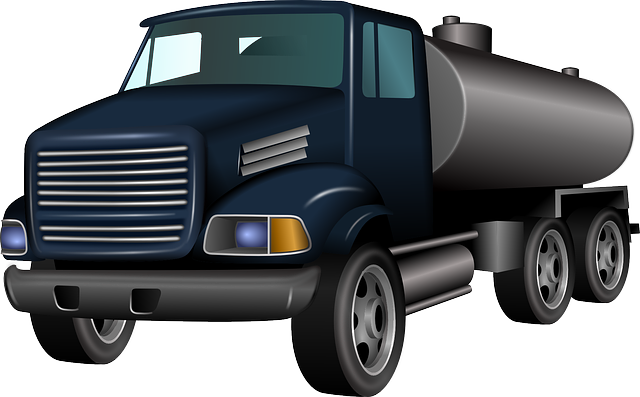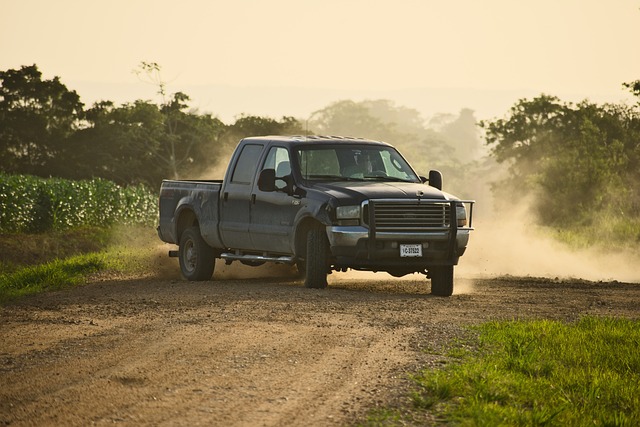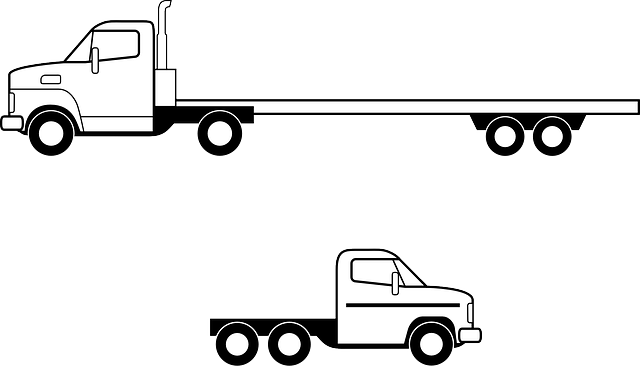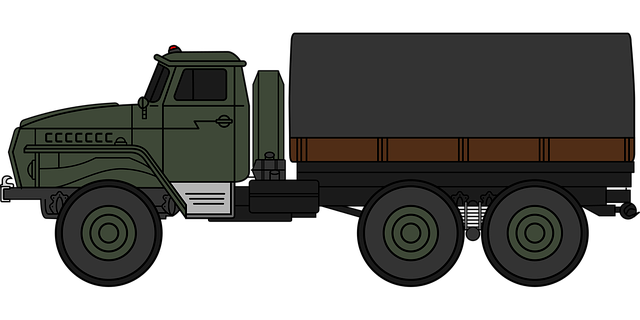When choosing a truck battery for towing, it's crucial to consider both the cold cranking amps (CCA) for reliable engine starts in various climates and the reserve capacity (RC) to support prolonged usage of electrical accessories. High ampere-hour (Ah) ratings are beneficial for trucks that frequently tow and require a consistent power supply for heavy loads or extended use of auxiliary equipment. For continuous, long-term energy needs like camping trips with a trailer, deep cycle batteries are the best choice due to their ability to handle multiple discharge and recharge cycles without significant capacity loss. Conversely, if your main priority is to ensure your truck starts quickly and reliably in cold or hot conditions, then a battery with a high CCA rating should be your go-to. For applications that require both starting power and sustained energy delivery, a dual-purpose battery offers the best of both worlds. Ensure that whichever battery you choose, it is physically compatible with your truck's battery compartment to avoid movement or disconnection during towing. Additionally, consider the type of battery technology for durability against vibration, and look for a comprehensive warranty to protect your investment. With these factors in mind, you can select a truck battery that matches the demands of heavy-duty towing and ensures reliability on the road.
When it comes to towing, your truck’s battery plays a pivotal role in ensuring a smooth and reliable experience. Selecting the right truck battery is not just about power; it’s about performance under various conditions. This article delves into the specific requirements of truck batteries for towing, offering insightful guidance on what to consider for optimal functionality. From understanding your truck’s battery needs to exploring advanced technologies that enhance efficiency, each section provides a comprehensive look at the factors influencing battery performance and the types of batteries most suited for heavy-duty towing tasks. We’ll also cover key specifications, including ampere-hour rating, and compare deep cycle versus starting batteries to help you make an informed decision. Additionally, we’ll discuss maintenance-free options and the importance of sizing your battery correctly. With expert advice on installation, safety, and longevity, as well as a cost-benefit analysis for high-quality truck batteries, this guide is designed to ensure your truck’s battery supports you every mile of the way.
- Understanding Truck Battery Requirements for Towing
- Factors Influencing Truck Battery Performance During Towing
- Types of Truck Batteries and Their Suitability for Towing
- Key Specifications to Consider in a Truck Battery for Towing
- The Importance of Ampere-Hour Rating in Heavy-Duty Towing
- Deep Cycle vs. Starting Batteries: Making the Right Choice
Understanding Truck Battery Requirements for Towing

When selecting a truck battery for towing, it’s crucial to consider the power demands of your specific towing setup. The right truck battery must have enough cranking amperage (CA) and reserve capacity (RC) to start the vehicle and provide consistent power during long-duration tasks or idling. Heavier loads require more electrical energy to operate, which means a high-quality truck battery with a robust ampere hour (Ah) rating is essential for reliability. The size of the battery should also align with your truck’s alternator output to ensure adequate charging while on the road. Additionally, consider the battery type; deep-cycle batteries are often preferred for towing due to their ability to sustain discharge and recharge cycles without compromising performance. For heavy-duty towing applications, opting for an absorbed glass mat (AGM) or lithium battery can offer superior durability and vibration resistance compared to traditional flooded lead-acid batteries. Always match the battery’s cold cranking amps (CCA) rating with the manufacturer’s recommendations for your truck model to ensure optimal starting performance in various climates. Proper maintenance and regular checks of the battery voltage and charge levels are also key factors in maintaining a reliable power source for your towing needs.
Factors Influencing Truck Battery Performance During Towing

When selecting a truck battery for towing, several factors significantly influence performance and reliability under the demands of hauling trailers or heavy loads. Firstly, the ampere-hour (Ah) rating is crucial; it measures the amount of energy a battery can deliver at a given rate. For towing applications, a higher Ah rating ensures that the truck’s electrical systems receive a steady supply of power, even when drawing from the battery over extended periods or during high-power operations like starting the engine after prolonged idling.
Moreover, reserve capacity (RC) is another vital aspect. RC indicates how long a new, fully charged battery can deliver 25 amperes at 80 degrees Fahrenheit before dropping to 1.75 volts per cell. In towing scenarios, a high RC means the battery can handle the additional electrical draw from trailer lights, onboard electronics, and other accessories without being depleted prematurely. Additionally, considering the battery’s physical dimensions and ensuring compatibility with your truck’s battery tray is essential. The right size not only ensures proper installation but also that the battery has enough capacity to meet the energy demands of heavy-duty towing.
Lastly, the type of truck battery technology, whether it’s traditional lead-acid, absorbed glass mat (AGM), or lithium-ion, plays a significant role in performance. AGM batteries, for instance, offer advantages like vibration resistance and a longer lifespan compared to conventional flooded batteries, which can be particularly beneficial when the road is less than smooth due to the rigors of towing. Lithium-ion options provide even greater energy density and weight savings, but they also come with a higher upfront cost. Understanding these factors will help ensure that your truck battery stands up to the challenges of towing, keeping you prepared for the road ahead.
Types of Truck Batteries and Their Suitability for Towing

When selecting a truck battery suitable for towing, it’s crucial to understand the different types available and their specific characteristics. Truck batteries primarily come in two main categories: starting (cranking) batteries and deep-cycle batteries. Starting batteries are designed with high amperage output to efficiently start your vehicle’s engine, even under cold conditions. For towing applications, however, a deep-cycle battery is often more appropriate due to its ability to provide consistent power over extended periods, which is essential when drawing substantial current from the battery for prolonged durations, as is common with towed loads and additional electrical systems in trucks designed for towing.
Deep-cycle batteries are built to handle frequent discharges and recharges better than their starting counterparts. They have thicker plates and are constructed to provide a steady supply of energy without compromising performance. When choosing a deep-cycle battery, consider the Reserve Capacity (RC) and Cold Cranking Amps (CCA). The RC indicates how many minutes the battery can deliver at least 25 amps at 80°F (27°C) before running down below 1.75 volts per cell. A higher RC is beneficial for towing, as it suggests the battery can supply a steady current without depleting too quickly. Meanwhile, CCA measures the battery’s ability to turn over an engine in cold temperatures, which remains relevant even when the primary use isn’t starting the engine but rather powering accessories while towing.
Ensure that the battery you choose is appropriately sized for your truck and the towing demands you anticipate. The right truck battery for towing not only starts the vehicle efficiently but also sustains the additional power requirements of trailers, campers, or heavy-duty towing tasks. With the right battery in place, you can confidently embark on your towing endeavors, knowing that your electrical systems will operate reliably.
Key Specifications to Consider in a Truck Battery for Towing

When selecting a truck battery for towing, it’s crucial to focus on several key specifications that will determine the battery’s performance under the demands of heavy-duty towing. The first consideration is the battery’s cold cranking amps (CCA) rating. This figure indicates the battery’s ability to start an engine in cold temperatures, a critical aspect for towing, where starting capabilities are often required even in harsh climates. A higher CCA rating means the battery can deliver more power at lower temperatures, ensuring reliable starts.
Another vital specification is the reserve capacity (RC), which measures how many minutes the battery can maintain essential functions at 25 amps without falling below 1.75 volts per cell. For towing applications, a larger reserve capacity is advantageous as it provides more power for extended periods, such as when running auxiliary equipment or idling while loaded. Additionally, the battery’s ampere-hour (Ah) rating, which denotes the total amount of energy the battery can store, should be evaluated. A higher Ah rating means a larger energy reserve, beneficial for trucks that regularly tow heavy loads and may draw more power from the battery.
Furthermore, the physical size and group size of the truck battery are essential for compatibility with your vehicle. Ensure that the battery you choose fits securely within the battery compartment of your truck to prevent any risk of movement or disconnection while towing. The type of battery technology—whether it’s traditional lead-acid, absorbed glass mat (AGM), or lithium ion—also plays a role in its lifespan and maintenance requirements. AGM and lithium batteries, for instance, often outlast standard lead-acid batteries and are more resistant to vibrations typically experienced during towing. Lastly, consider the warranty period and terms, as a robust warranty can offer peace of mind and protect your investment over the long term. By carefully evaluating these specifications, you’ll be better equipped to choose a truck battery that meets the demands of your towing needs.
The Importance of Ampere-Hour Rating in Heavy-Duty Towing

When selecting a truck battery for heavy-duty towing, understanding the ampere-hour (Ah) rating is paramount. The Ah rating signifies the amount of electricity a battery can supply over a period of one hour at a rate of one ampere. For towing applications, a higher Ah rating ensures that the battery has sufficient capacity to support the electrical demands of the truck’s accessories and the additional load during towing. This is crucial as constant operation of lights, winches, and onboard systems can rapidly deplete a battery with a lower Ah rating. Conversely, a battery with an ample Ah rating can maintain performance throughout long hours, reducing the likelihood of a dead battery mid-tow.
In heavy-duty towing scenarios, where the engine is often left running to power accessories and provide cabin comfort for extended periods, the battery must be robust enough to handle these continuous draws without significant capacity loss. Truck batteries with high Ah ratings are typically designed with more plate surface area to accommodate larger active materials that can store more energy. This design translates to a longer service life, greater reliability, and consistent performance, which are essential for the demanding conditions of heavy-duty towing. When choosing a truck battery, prioritize models with high Ah ratings to ensure your towing endeavors are backed by a reliable power source.
Deep Cycle vs. Starting Batteries: Making the Right Choice

When selecting a truck battery for towing, understanding the differences between deep cycle and starting batteries is crucial. Deep cycle batteries are designed with a high-capacity structure, allowing them to deliver steady power over extended periods. They’re particularly well-suited for applications that require consistent energy output, such as running electric systems in a camper or trailer while on a trip. These batteries can handle multiple discharg and recharge cycles without significant loss of capacity, making them ideal for long-duration tasks associated with towing. On the other hand, starting batteries, also known as cranking batteries, excel at delivering short bursts of high energy needed to start an engine in various weather conditions. Their primary function is to ignite the engine’s spark plugs and supply power to onboard electronic systems during the initial startup phase.
Choosing the right truck battery for towing depends on your specific needs. If your towing setup includes running lights, power inverters, or other electric devices over extended periods, a deep cycle battery will be more advantageous. Conversely, if your primary concern is ensuring a reliable start for your truck in all conditions, a starting battery tailored for cold cranking amps (CCA) and reserve capacity (RC) specifications should be your choice. For applications that require both consistent power for accessories and a reliable start, a dual-purpose battery can offer the best of both worlds, combining some of the attributes of deep cycle and starting batteries to meet the demands of heavy-duty towing. When selecting a truck battery for towing, consider the energy requirements of your setup and choose a battery type that aligns with those needs to ensure optimal performance on the road.
Selecting the right truck battery for towing is a critical decision that ensures your towing endeavors are both effective and safe. This article has dissected the essential factors, from understanding your truck’s battery requirements to exploring the types of batteries available and their respective strengths for such tasks. Key specifications like ampere-hour rating, and the distinction between deep cycle and starting batteries, have been highlighted to aid in making an informed choice. In conclusion, the optimal truck battery for towing will enhance your towing experience, providing the necessary power and reliability needed on the road. Always refer to your vehicle’s manual and consult with experts when selecting a battery to ensure it matches your towing demands and supports your journey efficiently.
